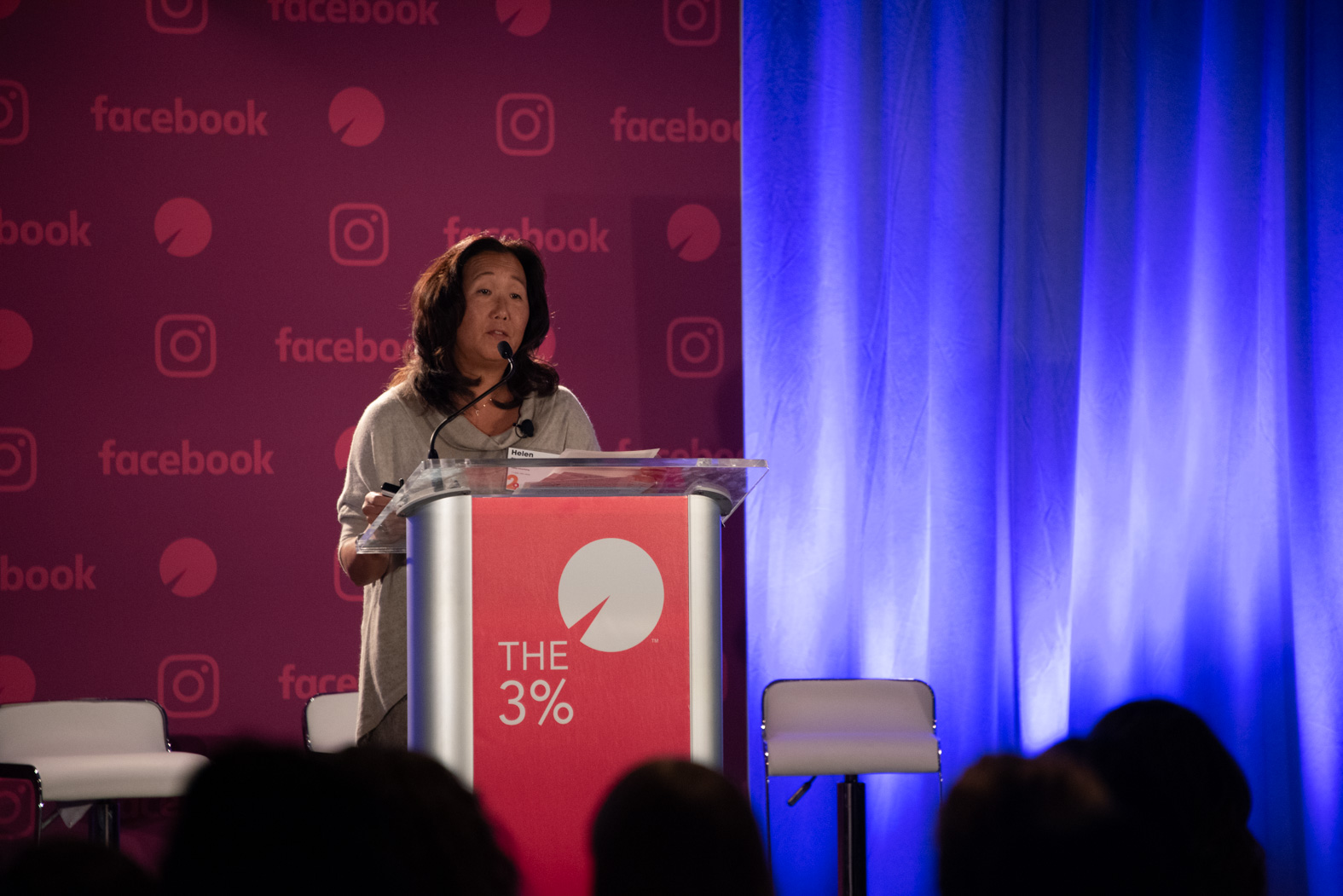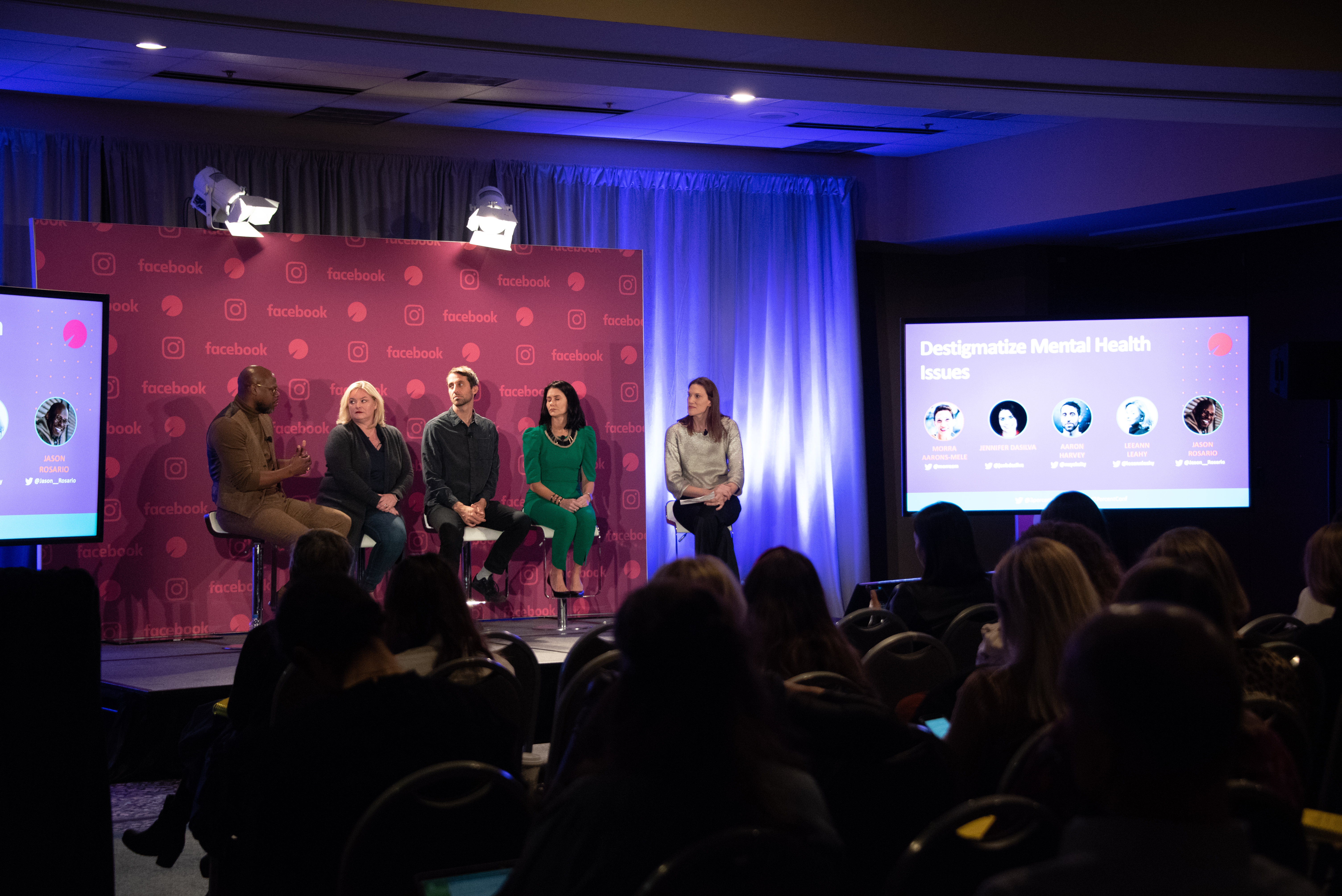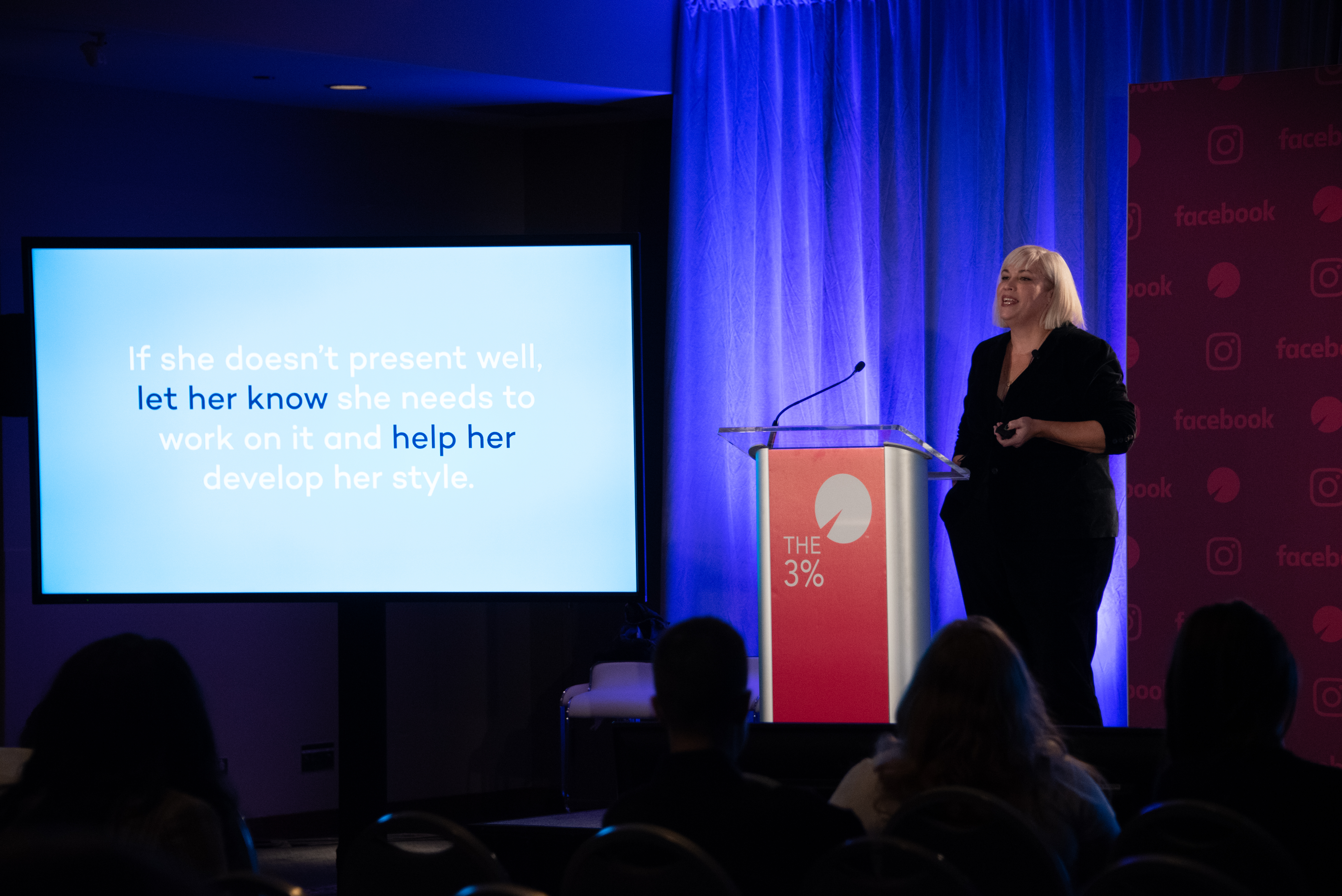
The How To Track: Part 1
Qadree Holmes is the Founder/Executive Producer of Quriosity Productions; a minority owned creative diversity boutique specializing in video production, post production and photography. Quriosity’s goal is to present to the market an MBE that can meet the challenges of working with brands while delivering exceptional service for our advertising clients. We want to be known for representing and employing a diverse creative talent roster including women and minorities that ultimately deliver and have a positive social impact and recognizable results. Qadree has successfully rose from intern to production assistant to producer and finally to the Founder/Executive Producer of Quriosity. While line producing, he recognized a significant shift in the market-clients and agencies were seeking integrated creative talent options to represent the different social channels now available. Conversely, they did not want to sacrifice quality or production value because budgets were shrinking.
Qadree is currently a board member for Free Spirit Media, AICP Midwest, Chicago Advertising Federation’s Diversity Thought Leadership Council, and the Advisory Board for the Midwest Independent Film Festival.
PRIVILEGE PROOF YOUR AGENCY
Speaker: Helen Cho, Director of Dailey Advertising

Helen Cho was quite an extraordinary speaker that took us on a journey of what she referred to as “Choing”, a time when she refused to become a full-time employee inside agencies and preferred being a solid permalancer. During this time, she shared her experience of being the only woman of color and often feeling like the culture of the agency did not suit her as a person. After taking time off to raise a family, she returned back to the advertising space but this time working with multicultural agencies where she felt the immediate culture shock of 2nd class citizen treatment. This is when she concluded that there was an overall problem with the advertising structure and not just the culture of advertising. General market mad men were exuding their unearned privilege without consequences for their actions. She describes these white men walking as though they had a get out of jail free card like in a game of Monopoly.
Cho commented on how studies have shown that:
Men are quoted 3.4 times more than women in media.
1 in 5 C-suite positions are held by women, and of that number 1 in 25 are African American women.
Black women account for only 1% of all advertising executives.
She then pivoted to the popular story which was adapted into a movie, “Hidden Figures,” where minority women were given the opportunity to excel beyond belief in the shadows of their non-minority male counterparts.
Cho went on to comment about the male bias in the crash dummy tests that were conducted in the 1980s for airbags. Completely oblivious on my part, I was unaware that these crash dummy tests were based on men and never considered what the impact would be for a woman or even children for that matter. We’ve all seen the commercials, but it wasn’t until 2011 that an actual crash dummy test was done on a woman and then enacted for change in 2012. This, of course, is after many lives of women and children had been lost throughout the years. This was a result of the male-dominated workplace.
She challenged us to think about what work would look like if we had Frida Kahlo Fridays or Toni Morrison Mondays for positive ways of communicating with your employees. She’s discovered that hiring based on merit in advertising was equivalent to the SATs which have been found to be biased and based largely on socio economics. Advertisers and agencies need to begin reviewing diversity and talent as two separate things. Most hiring is done based on word of mouth. If studies have shown that the average white American has 1 black friend and 1 Latinx friend, then the percentages for hiring based on diversity suffer.
Cho discussed the disconnected ads that somehow made their way to the eyes of consumers because they clearly lacked a true understanding of cultural diversity. The Ancestry ad that shows a slave mesmerized by her slave master; the infamous Pepsi commercial that everyone heard about as well as the Coolest Monkey shirt print ad produced on behalf of H&M. Where were the diversity advocates when these projects where being created? What client sat in the room and greenlit projects with such bias? They clearly lacked the idea of the diversity bonus. Studies have shown that by hiring more diversely you get a diversity bonus of different perspectives. The bonus that many researchers have suggested that you get from having a wide range of diverse voices and backgrounds: women, minorities, LGBTQIA. When you don’t have real perspective, you lose this. As brands your current and potential consumers make you pay for it. The costs to repair the long terms effects of these mistakes are often times easily solved by increasing diverse perspectives. She argued that structures of privilege create cultures of privilege. This we must change.
Cho encouraged our audience to dismantle the structural and cultural issues of privilege by including women and people of color in these much-needed conversations. She encouraged the audience to be good allies by listening to the voice of minorities when they discuss the issues as well as to speak up as an advocate when you feel someone lacking privilege is being wronged. Finally, she asked those of privilege to stop making colorblind statements like “I don’t see color” because it advertently says race should not be seen or heard which is the wrong message. Consider your “wokeness” as a work in progress. So many people on social media post about being woke but are merely scratching the surface. Make sure that you are being inclusive where it counts. Finally, we need good mentors! Research suggests that black women have the lowest levels of mentorship by company executives.
I enjoyed listening to Helen Cho speak. We know that these biases exist in the world in all business sectors. Advertising is viewed as one of the most liberal from the outside perspective. However, we dive into a world of metrics and judgment that sometimes seems outdated for the times.I did appreciate Helen’s ability to connect with the audience by providing tools and practical solutions to shift behavior. Often times people simply don’t know and this presentation gave the audience a toolkit to change culture and shift structure. We can’t sit on the excuse of lack of awareness forever. Ultimately, you will become less relevant and will literally get left behind with old ideologies that don’t work for our modern America.
DESTIGMATIZE MENTAL HEALTH ISSUES
Moderator: Morra Aatons Mele, Founder of Women Online
Panelists: Jen DaSilva of Berlin Cameron, Aaron Harvey of Ready Set Rocket, Leann Leahy of The Via Agency and Jason Rosario of The Lives of Men

By no surprise this presentation had a packed crowd. The panel consisted of Jen DaSilva of Berlin Cameron, Aaron Harvey of Ready Set Rocket, Leann Leahy of The Via Agency and Jason Rosario of The Lives of Men. This question and answer panel discussion touched on a very sensitive subject. We all acknowledge that advertising can be very demanding. Long hours, flights, late night and early client requests, constant emails, phone calls and managing family obligations. Where does the work life balance lie? Both work and life seem to be combined with very little separation.
Jenn DaSilva discussed that research has shown that 70% of advertising employees don’t use the resources provided to them for mental health and 40% have felt that if their employers knew they suffered from mental health issues it would ruin their careers. Well, this all starts at the top with leadership. Leaders need to learn to be vulnerable to create a safe space for all employees to discuss their fears and anxieties. As leaders it is ok to acknowledge your own fear about mental illness. This creates an environment of openness. We’ve all heard the old term, it is lonely at the top. Well, this is a result of many leaders being afraid to talk about mental health and actually having an outlet to discuss the stresses of the leadership and working in advertising. DaSilva has asked companies to begin pushing to allow for mental health issues in the workplace to be acknowledged. Many companies are even adopting new terms; vacation day, personal day and adding in mental health day as an acceptable reason for not coming to work.
Aaron Harvey was very candid and opened up about his own personal struggles with OCD. He discussed how he lived in silence for two decades seeming healthy and helpful to his team but privately he was struggling with unhealthy behaviors. After numerous attempts to ignore his thoughts he googled unhealthy behaviors and discovered the PURE disorder. He was later diagnosed with this disorder and thought, as a white man of privilege, he had a responsibility to start sharing. He wanted to break the stigma that surrounds mental health. He acknowledged that he was very fearful of what his clients and board of directors would think once he shared his true story. Like himself, he noted that many leaders are afraid when they need to confront mental health issues. Companies need to spend more time preparing their leadership to deal effectively with employee mental health. He encouraged anyone suffering with mental health issues to assess their risk of being fired in current day business culture or even being skipped for a promotion for disclosing. In the end the employee needs to make sure the environment they are in is a safe place or find other employment that can offer that level of security to them without judgement.
Leeann Leahy shared that her CCO commited suicide in April. She received the call on Easter Sunday. Greg’s family was very honest about his struggles which was an amazing gift. She boasted that it allowed her team to discuss mental health. She said, “we need to be open with it because everyone has STUFF going on.” After this tragedy she says, “The Via Agency helped us to discover who we are as human beings beyond work.” All types of therapy followed the suicide which allowed accommodations for everyone’s individual grieving processes.
People came forward to open up about their struggles with addiction, anxiety, etc. It is a good reminder that our culture is so focused on inspiring someone that sometimes it pushes too much. Creates a “Go Do” something to inspire positive impact. He explained how when she saw that her team was overwhelmed. She stopped the entire company to do nothing without doing work. She acknowledged she was now paying attention. We need to find ways to celebrate someone asking for help as leaders. “If you are going to be the vulnerable person then you need to be the worker and the person that does the best at their job”, she added.
Jason Rosario started the conversation by saying that truth plus transparency equals vulnerability. He works helping men to challenge their identity. Leaders want to uphold this idea of masculinity and it needs a healthy language and spaces where men can be safer and braver. Vulnerability is what allows us to do great work. It unlocks the best of the brand from the inside. Rosario would like to see more brands be more open with themselves. Vulnerability is an action of leadership and allows the world to see you are in. You don’t know what you will get in return. 90% of consumers want to do business with brands they trust. Old traditional values keep dividing between the human being and business. Humanness is important he stated.
After all, we are in the people of business!
People in the workplaces are struggling. Just like in our personal lives, things just happen. Life happens: divorce, client loses, poor leadership, layoffs, deadlines, coworker loses. These all potentially serve as major triggers for anxiety. Sometimes acknowledgement and asking the questions of those you are concerned about might help. What kind of culture are you in at work? Does the workplace culture work for you? Ultimately, we all need to learn to advocate for ourself. I need time to think about it. Can I get back to you?
This by far was the session that seemed to be one of the most important of the entire conference for me. I think it showed that work life balance and mental health are both equally important. When we are constantly hearing about how people in advertising are Bad Ass B’s and #BossWomen, there rarely is a focus on what does this actually look like internally. What are the struggles that client demands create on those meeting those demands? Anyone that is of status is constantly bombarded for more interaction and more people wanting and needing something from them. Mental health awareness and conversation should remain at the top of our list to create healthier individuals around us in the advertising workspace.
THERE IS MORE TO DO THAN #METOO
Speaker: Laura Fegley

Perfectly timed as Laura Feagley of O’Keefe Reinhard and Paul (OKRP) was about to grace the stage, the announcement came of her promotion as the new Chief Creative Officer of the agency. Laura took a different approach with her time on stage. She interviewed and sat down with women in advertising who were simply annoyed by the status quo to give the audience some real-life feedback. She discussed the ever so popular Fishbowl conversation where many go to vent about their clients and their agencies. She said women are frustrated from not being seen or heard. They are over the “Bro” culture. They also want to say loud and clear, just because you aren’t being awful to women doesn’t mean you are being awesome to women. So, she took us through a comedic yet honest list of ways to NOT SUCK.
o It can be weird getting to know you outside of work.
o Try reaching out to learn more about your female coworkers.
o Don’t expect the ladies to be one of the boys. (People expect to be themselves.)
o Resist the temptation to be around people that are most similar to yourself.
o Embrace the different voices to encourage better work.
o Look for people who look different in our work environment and respect who they actually are.
o Don’t make women the draft horses. If you put women on hard accounts sometimes they don’t create the best work.
o Be careful that you don’t get taken advantage of as a woman in the workplace.
o Expect that everyone is given the same level of work.
o Hear the idea from the woman not wait for the man to say it.
o You don’t want the best thinkers in the corner. Acknowledge where the great ideas come from.
o Charming men get more practice to present over many great women.
o Be a mentor or matchmaker at an agency mentoring women and minorities.
o Managing pregnancies, adoption or surrogacy
o Love your moms
o Ask questions like how is your workload?
o When do you think you will want to leave for a maternity period?
o How is the pregnancy going?
o When should we expect to shift things?
o Start including women in conversations about her.
o Lactation schedules happen-don’t make it weird.
o Care enough about your employees to make the industry get better
o Find other ways to engage with women outside of just drinks
o Listen and give credit where credit is due.
The long and short of her presentation was to remind company leaders and ownership to understand what kind of workplace you are creating.




